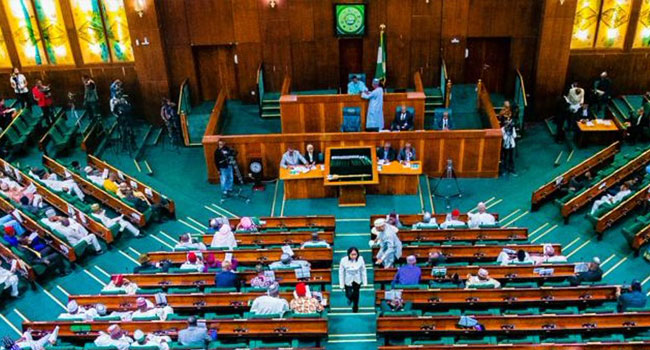The House of Representatives, said it introduced 1,351 bills in the first session of its sittings, which it claimed is the highest number in any first session since 1999, out of which 89 were passed.
The Deputy Speaker, Rep. Benjamin Kalu, who presided over plenary in Abuja on Tuesday, said this at the commencement of the 2nd session of the 10th House of Reps.
He said that the feat achieved through the bills introduced and passed including motions moved, reflected the House commitment to legislative efficiency and effectiveness.
He said, “additionally, 679 motions were introduced, setting a record for the number of motions in the first session.
Kalu said that the key bills included: access to higher education Act, 2024, popularly known as the Students Loan Bill, and the electricity Act (Amendment) Bill, 2023.
This, he said, was aimed at enhancing the efficiency and sustainability of Nigeria’s electricity sector by promoting investment in renewable energy sources.
The deputy speaker also listed the Federal Audit Service Act (Amendment) Bill, 2023, which is aimed at strengthening financial oversight and transparency, ensuring better management of public funds and reducing corruption.
Kalu said that one of the core functions of the legislature was oversight, adding that this often came through public hearings, investigative committees, and rigorous debates.
According to him, we have held the executive accountable, ensuring that public funds are used judiciously and that government policies are aligned with the needs of the people.
“Our oversight activities have led to significant outcomes, including recovering misappropriated funds and rectifying administrative inefficiencies.”
He stated that the House had equally considered a good number of public petitions, prioritised constituency engagements, and held productive citizens’ town halls on budget considerations.
Others, he said include: electoral reforms, and the articulation of legislative agendas, adding that the House could not have done otherwise given its appellation as the people’s House.
Kalu said, “as we begin this second session, we must acknowledge that there are challenges ahead and in spite of our efforts, Nigeria continues to grapple with issues of poverty, unemployment, and inequality”.
He said that the expectations of constituents remained high, adding that they looked up to the lawmakers to address pressing issues such as security, economy, healthcare, education, and infrastructure.
He said, “the gains of democracy must translate into tangible improvements in the lives of our citizens. As legislators, we are aware that our work is far from complete.
“We must continue to enact laws that promote economic growth, social justice, and environmental sustainability.
“In this regard, it is imperative that we strengthen our institutions and enhance our legislative processes. We must invest in capacity building for legislators and staff,
“Improve our data collection and analysis capabilities, and foster greater collaboration with civil society and the private sector.”(NAN)
READ ALSO:
- PHOTO: 4 Envoys Present Letters of Credence to President Tinubu
- PHOTO NEWS: Obasanjo On Condolence Visit To Gov. Makinde
- NAICOM, NPF Launch Joint Committee on Compulsory Insurance Enforcement
- Alonso Elated To Keep Boniface At Bayer Leverkusen
- FIRS targets N25.2trn from tax payers in 2025 – Adedeji


